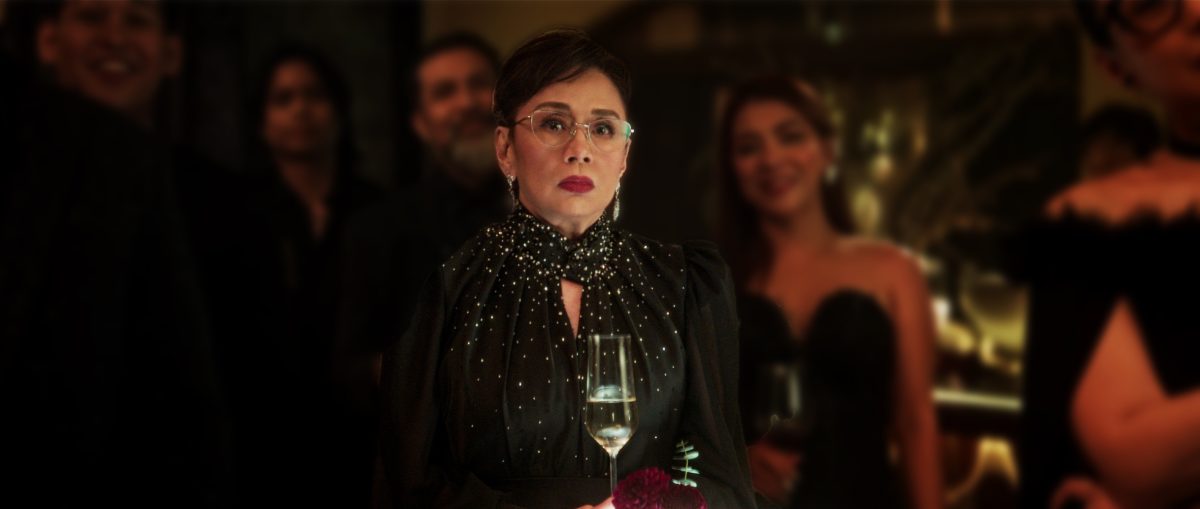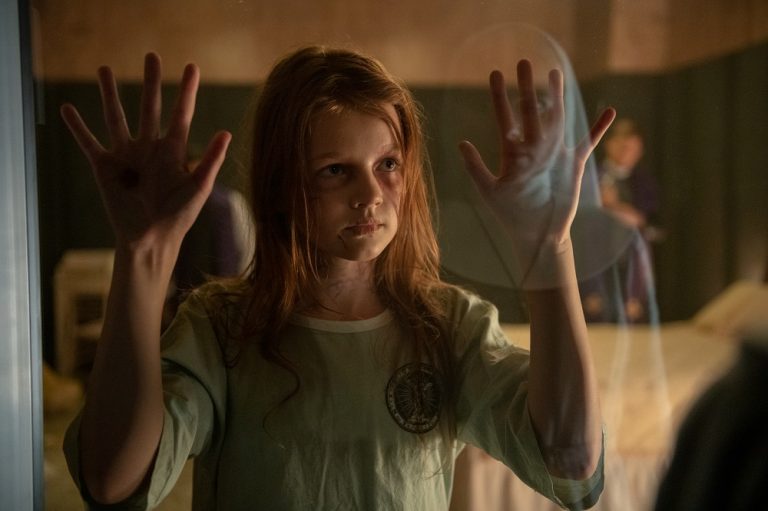Uninvited (2024) delves into the psychological complexity behind Lilia’s decision to spare one life while claiming others in her quest for revenge. Initially fueled by a burning desire to punish those she sees as complicit in Vega’s crimes, Lilia undergoes a profound transformation. The film explores how newfound understanding, particularly through the lens of shared trauma, can reshape the course of vengeance, revealing the fragile line between justice and retribution. But what truly ignited Lilia’s thirst for revenge? Let’s take a closer look.
Spoilers Ahead
Uninvited (2024) Plot Summary and Movie Synopsis:
Why does Lilia want to kill Vega?
Lilia Capistrano’s desire to kill Guilly Vega stems from a decade-old tragedy that destroyed her world. Her daughter Lily, a college student with a bright future, is abducted and murdered alongside her boyfriend Tofy in a horrific crime orchestrated by Vega’s men. Lilia, once a quiet teacher and loving mother, is forever changed. Lily and Tofy are kidnapped during an innocent study session.
Jomar Maitim, under Vega’s command, scouts and seizes them. They are delivered to Vega, who rapes Lily while his enforcers, Celso Batac and Randall Ballesteros, torture Tofy. The couple is eventually killed, and their bodies are dumped and later discovered. No justice follows. The system shields Vega, a powerful and corrupt billionaire. Lilia, helpless and devastated, spends ten years nursing her grief. Her sorrow curdles into vengeance.
On Vega’s 55th birthday, Lilia infiltrates his mansion under the alias Eva Candelaria, pretending to be a wealthy donor. She surveys the scene: Vega is surrounded by his enforcers, his drug-addled daughter Nicole, her boyfriend Mark, his indifferent wife Katrina, and even his political enemy, Colonel Red. The celebration is extravagant, but beneath the glitter, Lilia sees monsters.
Each of them, especially Vega and his men, played a role in her daughter’s fate. Her goal is clear: make Vega pay for what he did to Lily and Tofy. Her plan is deliberate. She doesn’t just want to kill him; she wants him to know why he’s dying. In this twisted party of power and arrogance, Lilia walks in as death in disguise, seeking justice for a daughter lost to cruelty.
What Does Vega Do to Jigger Zulueta and Why?
At his extravagant 55th birthday party, Guilly Vega discovers that his wife, Katrina, has been having an affair with their handyman, Jigger Zulueta. Although Vega is surrounded by celebration, he is inwardly seething. The knowledge that his wife might be cheating on him during his own birthday pushes him toward emotional instability.
Vega’s reaction is not impulsive; it is simmering fury that boils over once he sees Katrina return from her brief absence. He senses that she had been with Jigger moments before. Vega takes Jigger aside for a private confrontation. Instead of erupting immediately, Vega speaks with unsettling calmness. He tells Jigger how hurt he feels, laying bare the emotional damage of the betrayal. But despite Jigger’s repeated assurances and loyalty pledges, Vega no longer sees him as trustworthy. The betrayal, whether confirmed or merely suspected, becomes too great for Vega to overlook.
What begins as a civil confrontation ends in a brutal execution. Vega, unable to suppress his rage, pulls out a gun and shoots Jigger multiple times. The act is driven not just by anger but by humiliation. For a man like Vega: rich, powerful, and feared, the idea that a mere handyman could encroach upon his private life is intolerable.
The shooting is his way of reclaiming control and restoring dominance, both over his wife and those around him. Vega is not just a billionaire with a criminal past; he is also a man obsessed with control. Jigger’s supposed betrayal isn’t just personal. It is, to Vega, a threat to his image and authority. His violent reaction stems from a deep fear of vulnerability and loss of face, especially in front of his elite guests. Ultimately, Vega’s actions are a dark reflection of his pride and possessiveness, revealing how little room he allows for forgiveness or weakness.
Why does Lilia let Nicole go?

Lilia initially targets Nicole as an “enabler” of Vega’s monstrous behavior. She believes Nicole, along with her mother, passively benefited from Vega’s ill-gotten wealth, thereby contributing to his unchecked reign of terror. Lilia views them as complicit in the suffering of Vega’s victims, including her own child. However, Nicole’s shocking revelation shatters Lilia’s perception.
Nicole discloses that Vega, her father, has been sexually abusing her since childhood. This revelation fundamentally shifts Nicole’s status from an enabler to a victim, mirroring Lilia’s own experience of suffering at Vega’s hands. Lilia, having also been a victim of Vega and having grown up believing there was no escape from her own father, immediately empathizes with Nicole. This shared trauma creates an unexpected bond.
Lilia’s initial motivation is rooted in a desire for retribution against those who allowed Vega’s depravity to flourish. She holds the “enablers” responsible for Vega’s transformation into a monstrous creature. However, Nicole’s story forces Lilia to re-evaluate her understanding of complicity. Nicole’s dependence on Vega’s financial support, despite her detestation of him, highlights a coercive dynamic rather than willing enablement.
Her mother’s ‘numbness’ as a coping mechanism also suggests a form of victimhood, rather than active participation. Ultimately, Lilia cannot bring herself to harm Nicole because she recognizes a fellow survivor. Nicole’s inability to escape her father’s abuse echoes Lilia’s own past helplessness. This realization transforms Lilia’s desire for vengeance into a profound sense of shared understanding, leading her to spare Nicole.
Uninvited (2024) Movie Ending Explained:
What Happens to Vega?
Guilly Vega enters the final confrontation brimming with arrogance. Armed and overconfident, he believes he still controls the narrative. He has just murdered Jigger, the handyman who betrayed him, and feels no remorse even upon learning that Lilia is the mother of one of his victims. Vega’s sense of invincibility is rooted in his wealth, influence, and delusion that he is above consequences. He commands Nicole to disarm Lilia and boasts that she is the only family he has left.
He expects loyalty, obedience, and admiration, even after years of emotional and physical abuse. As Vega prepares to kill Lilia, Nicole intervenes. She asks to be the one to shoot Lilia herself. Vega, blinded by pride, misreads her intent. He sees her compliance as proof of loyalty and encourages her. He still believes he can manipulate Nicole, just like he always has. But in that moment, Nicole takes control of her life for the first time. Instead of killing Lilia, she turns the gun on Vega and shoots him.
With Vega wounded and vulnerable, Lilia steps in. She draws her dagger and repeatedly stabs him, driven by years of suppressed grief and rage. For Lilia, this isn’t just revenge; it is justice for her daughter and all the other unnamed victims. Each stab is a release of pain she has carried for too long. Vega does not die as the powerful man he once believed himself to be, but as a broken tyrant brought down by two women he underestimated. His death marks the end of his reign of fear. It is messy, brutal, and poetic, a fitting conclusion for a man who thrived on silence and control, only to be destroyed by truth and defiance.
What does the Post-Credit Scene Show?
The post-credit scene of “Uninvited” reveals Colonel Red, Vega’s business rival, observing Vega’s lifeless body with a smirk. This action signifies his profound satisfaction. Vega had invited Red to flaunt his immense wealth and success, a move that ultimately led to his demise. Colonel Red’s smile is a clear indication of schadenfreude. He delights in Vega’s downfall. He likely recognized Lilia at the party but intentionally did not intervene. Red chose to let the events unfold, understanding that Vega’s past actions were catching up to him. He did not need to lift a finger; justice, in his eyes, was served by Vega’s own undoing. This highlights Red’s strategic and patient nature, allowing his competitor to self-destruct rather than directly engaging in conflict.






![Madres [2021] Review: A Half-baked Political Horror Film that Misses more than it Hits](https://79468c92.delivery.rocketcdn.me/wp-content/uploads/2021/10/Madres-2021-Movie-Review-3-768x432.jpg)